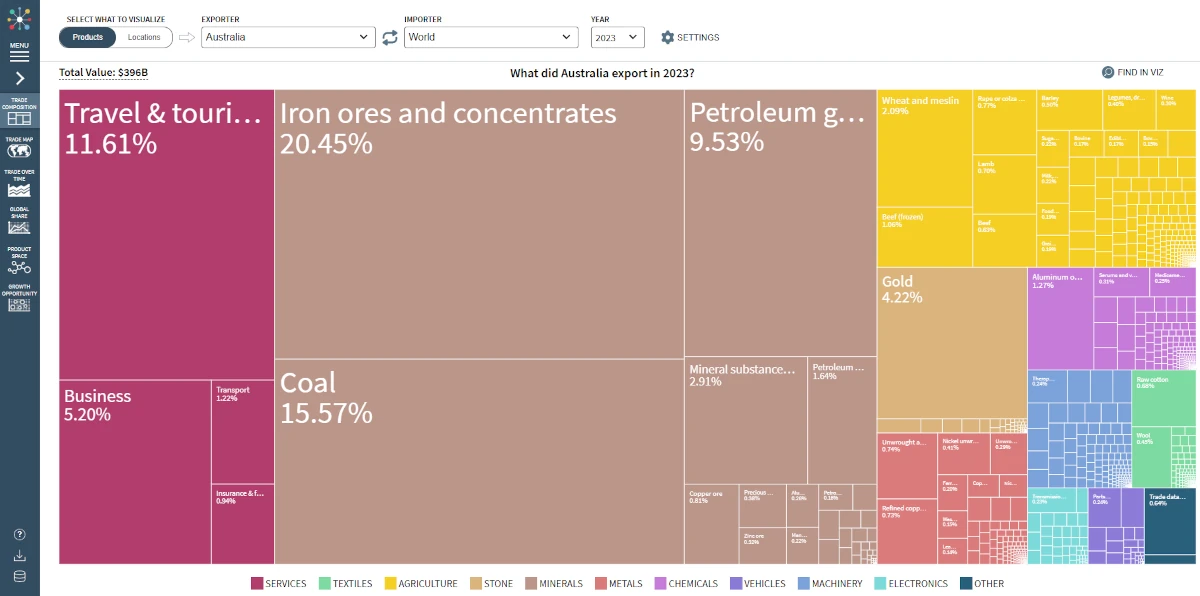🔗 Atlas of Economic Complexity is an interactive data platform developed by the Center for International Development (CID) at Harvard University. It offers a sophisticated lens for examining how economies grow – not just through output or GDP, but by analyzing the complexity and diversity of what countries produce and export.
At its core, the Atlas is based on the Economic Complexity Index (ECI) – a metric that doesn’t simply measure how much a country exports, but how advanced and diversified those exports are. Nations exporting only raw materials typically score low, while those exporting specialized machinery, chemical compounds, or electronics achieve high complexity scores. The higher the ECI, the greater the latent capacity for sustained economic growth.
Through its smooth, web-based interface, the Atlas allows you to:
- Explore each country’s export structure via detailed Tree Maps
- Understand long-term trends in trade and development through Time Series
- Navigate the Product Space – a network visualization showing which industries are closely linked and technologically adjacent
- Identify potential new export areas by exploring opportunity gain scores
- Compare nations’ trajectories across decades and see where paths diverged
For example, comparing countries with similar GDP but different ECIs reveals vastly different development paths. The Atlas shows that two economies with equal income levels may differ in their future potential, depending on how much industrial knowledge they embed in their exports.
What makes the Atlas remarkable is not just its data depth, but its clarity and openness. The tool is free to use, doesn’t require any login, and is completely ad-free. It’s a rare example of academic research made accessible and usable for the wider world.
Why does it belong in Cogimator.net?
- It’s non-commercial, publicly funded, and openly available
- It translates academic insight into visual and interactive formats anyone can explore
- It enables a more cognitive and strategic view of global economics
- It serves students, journalists, researchers, and policy makers alike
- It exemplifies how a web interface can turn data into discovery
In a world saturated with shallow dashboards and noisy analytics, the Atlas stands out as a quiet, thoughtful, and enlightening experience. It’s a place not to consume data, but to think through it.
🔗 Visit Atlas of Economic Complexity and see the unseen patterns of global trade.
